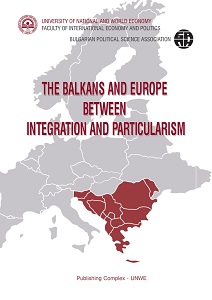The European Social Model in the Eurointegration of Romania and Bulgaria:
Quality of Life in Terms of Policies and Outcomes
The European Social Model in the Eurointegration of Romania and Bulgaria:
Quality of Life in Terms of Policies and Outcomes
Author(s): Gabriela Motoi
Subject(s): Politics / Political Sciences, Politics, Public Administration, Labor relations, Welfare systems
Published by: Университет за национално и световно стопанство (УНСС)
Keywords: EU enlargement; welfare state; social policy; education; healthcare
Summary/Abstract: According to Eurostat statistics, more than 10 years after joining the European Union, Bulgaria and Romania "dispute" the last places in the rankings, which reveal the evolution of the main indicators of the quality of life. In addition, it seems that 12 years of European funds absorption, a large part of them being for the development of human capital, were not enough for the Romanian and Bulgarian societies to make progress in improving the quality of life of their citizens. Based on these considerations, this study aims to analyse, in a comparative manner, how social policies on several topics, such as, population, education or health have or have not produced positive effects on quality of life. Moreover, our study is relying on the fact that, although there are national social policy regulations and action lines conforming to the European Social Model, in the two societies (Romanian and Bulgarian), statistics confirm us that the effects are not similar in each of the 28 EU countries.
Book: The Balkans and Europe between Integration and Particularism
- Page Range: 189-198
- Page Count: 9
- Publication Year: 2019
- Language: English
- Content File-PDF

